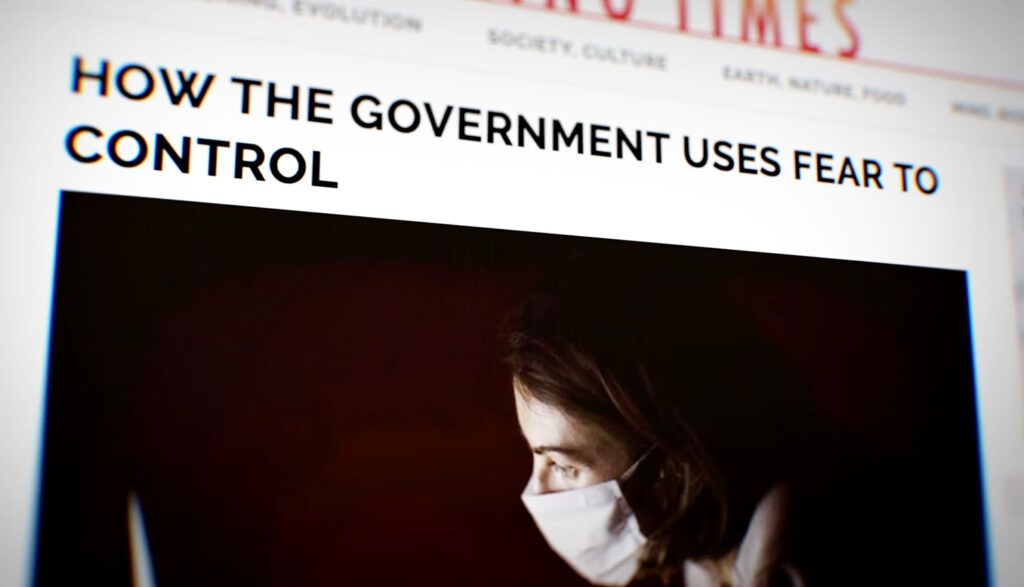
The marketplace of ideas is a concept that has permeated public discourse for a long time. And in the digital age, there’s no better example of such a place than YouTube. Anyone can hop onto the site and upload their video for the whole world to see!
But when the marketplace is crowded, and each vendor is trying to coerce you to hear what they have to say, how do you get customers to your booth? Well, what if you build a flashier stall—one that’s so flashy that the officiants of the marketplace put it on the front page of their brochure for all to see?
Well, that just might be an issue, The YouTube Effect argues.
The documentary describes how YouTube came to be the powerhouse that it is today, hosting “2.6 billion users worldwide.” It explores how the website’s algorithm for recommendations not only prioritizes sensational, clickbait titles but also pushes viewers into a content echo chamber. That’s because the site’s recommendations are based around what users have previously viewed.
And while such recommendations might not be all that bad when viewers just want to watch gaming or cooking content, that sensationalized rabbit hole just might make a user a bit more radical when the subject is political in nature.
The YouTube Effect clearly identifies the dangers of the platform because of its (perhaps unintentional) promotion of clickbait articles via the YouTube algorithm. Though the website is ostensibly designed to allow people to engage with a plethora of ideas, its recommendations often pigeonhole viewers into content similar to that they’ve already watched, negating that goal.
The documentary, though bluntly against YouTube as it currently is, concedes that the website has helped many disenfranchised people have a voice when they previously had nowhere to express their views. And we hear from a couple of YouTubers who discuss how they have tried to become more cognizant of the impact they have as content creators.
We hear some references to tension between Christians and Muslims. Someone describes outrage due to misinformation as a new “Satanic Panic.”
One of the documentary’s interview segments features a transgendered person. We see various sensual images throughout the movie, including women in revealing undergarments, a shirtless man and a few seconds dedicated to a website about ranking peoples’ attractiveness. A couple of comments in a screenshot reference pornography and breasts. A video allegedly uploaded to YouTube Kids depicts a superhero touching a Disney princess’s covered breast. Other clickbait videos make references to women accidentally exposing their breasts.
The documentary touches on many violent things that it suggests YouTube had a role in promoting, such as various riots and a video of a reporter’s murder during a live segment. Various YouTube Kids videos depict beloved characters getting hurt, such as a scene in which Mickey Mouse’s ear is cut off or another where an animated baby’s hand goes through a nail, complete with blood. We hear references to death and rape threats. Various clips depict other expressions of anger or violence.
Profanity pervades the documentary. Viewers will hear dozens of f-words and many s-words. The c-word is seen onscreen once, albeit censored. We also hear or read various vulgarities, including “a–,” “b–ch,” “d–n,” “p-ss,” “wh-re” and “f-ggot.” Someone displays their middle finger. God’s name is used in vain over 10 times.
None, really, though a couple of scenes involve children getting shots.
We’re shown a medley of controversial videos made for clicks, such as when Logan Paul uploaded a video of a dead body to his channel or when Sam Pepper played a “prank” on a friend by kidnapping him and pretending to kill someone.
The documentary contains somewhat of a jumpscare of a creepy still of a monster called Momo. Various YouTube comments say cruel things to creators.
The YouTube Effect highlights significant concerns regarding the way the YouTube algorithm that prioritizes clicks over content. Because sensationalized titles make us more likely to view the content, they also make a video with an outrageous title more likely to succeed—just like other forms of clickbait all over the internet.
The documentary argues that this system has allowed political YouTubers (and, in particular, YouTubers the documentary labels as being on the “far right”) to radicalize those who feel disenfranchised, leading to a society that is angrier and acting upon information that might not even be true.
In a way, that message parallels one of the key ideas that Plugged In addresses as well: The entertainment we consume influences us as people. But while that message is implicit within The YouTube Effect, the documentary itself instead advocates for more political accountability—which some could construe as a form of censorship—for the video-sharing giant.
There’s a conversation to be had about how much YouTube should shoulder responsibility for negative content published on its platform. But we would also first encourage users to guard their hearts and to weigh the truth in any bit of information they glean there.


Kennedy Unthank studied journalism at the University of Missouri. He knew he wanted to write for a living when he won a contest for “best fantasy story” while in the 4th grade. What he didn’t know at the time, however, was that he was the only person to submit a story. Regardless, the seed was planted. Kennedy collects and plays board games in his free time, and he loves to talk about biblical apologetics. He thinks the ending of Lost “wasn’t that bad.”